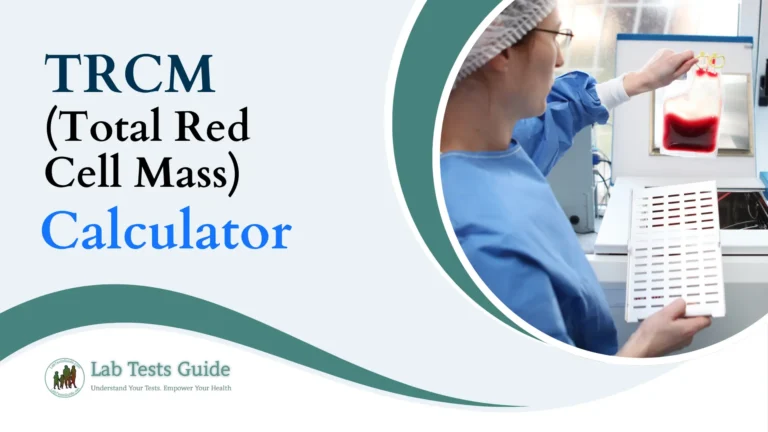The Corrected WBC Count Calculator (for NRBCs) ensures accurate white blood cell (WBC) measurements by accounting for nucleated red blood cells (NRBCs) that may falsely elevate results.
- Why Use It?
- NRBCs are immature red blood cells mistakenly counted as WBCs by automated analyzers.
- Uncorrected WBC counts can lead to misdiagnosis (e.g., falsely high WBC in leukemia or sepsis).

Why Correct for NRBCs?
Nucleated Red Blood Cells (NRBCs) are immature red blood cells that may be mistakenly counted as white blood cells (WBCs) by automated analyzers, leading to a falsely elevated WBC count. Correction ensures accurate results for clinical decisions.
Formula:
Example:
- Observed WBC = 15,000 cells/µL
- NRBCs = 10 per 100 WBCs
Step-by-Step Guide
- Get Lab Results:
- Observed WBC count (cells/µL).
- NRBCs reported as “X NRBCs per 100 WBCs.”
Plug into Formula:
Interpret: Compare corrected WBC to normal ranges (4,000–11,000 cells/µL for adults).
🧮 Corrected WBC Count Calculator (If NRBCs Present)
📐 Formula:
When to Use This Correction
- NRBCs are present in newborns (normal up to 10/100 WBCs).
- Adults with conditions like:
- Severe anemia
- Bone marrow disorders (leukemia, myelofibrosis)
- Hemolytic disease
Normal vs. Abnormal NRBCs
| Group | NRBCs per 100 WBCs | Action |
|---|---|---|
| Adults | 0 | Normal |
| Newborns | ≤10 | Correct WBC |
| Adults | >0 | Always correct and investigate cause |
Clinical Significance
- High NRBCs + Low WBC: Bone marrow stress (e.g., sepsis, hypoxia).
- High NRBCs + High WBC: Leukemia or myelodysplastic syndromes.
- Corrected WBC < Observed WBC: Indicates how much the NRBCs inflated the original result.
Practice Problem:
*Observed WBC = 20,000 cells/µL, NRBCs = 5 per 100 WBCs → Corrected WBC = ?*
Key Notes
- Modern analyzers often auto-correct for NRBCs – check your lab’s protocol.
- Always report NRBCs as “X NRBCs/100 WBCs” for accurate calculations.







